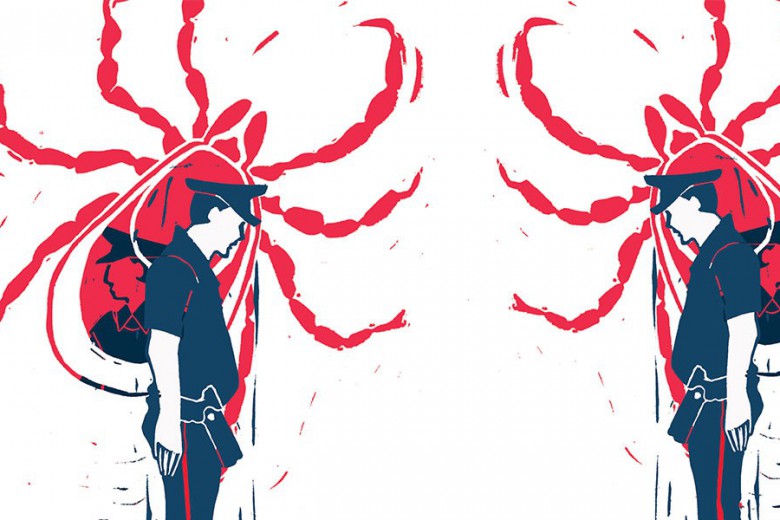As Canada invoked the Emergencies Act for the first time since its inception in 1988 to respond to protests in Ottawa, we wondered what an appropriate response would be, considering the history of police repression and violence against Indigenous land defenders and Black Lives Matters protesters. Led by a mix of antivaxxers, truckers, and far-right militias with intent to kill RCMP officers, foment civil war, or overthrow the government, the protests in Canada resemble the January 6, 2021 Capitol riots. Beneath it all is the larger issue of far-right misinformation campaigns that could spark future insurrections.
So how should we think about the policing of far-right protests with insurrectionary tendencies? To answer that question, journalist Arno Pedram interviewed Alex S. Vitale, professor of sociology at Brooklyn College and CUNY’s Graduate Center and author of The End of Policing, which argues for the defunding of police until its eventual abolition.
AP The protests happening in Canada seem to resemble the Capitol riots both in the rather soft police response – compared to the ones we’ve seen against land defenders and BLM protesters – and the composition – a mostly white crowd, supremacist groups, militias, antivaxxers, and far-right supporters. What do you think of the policing response you've seen in Canada and the U.S. to these two movements? Are these moments comparable?
AV I think there are a lot of important analogies between the policing of the so-called trucker protests in Canada and the policing of the Capitol protests in the U.S. In both cases, there's a stark contrast between the relatively light touch or unprepared posture of the policing of these protests in distinction to or in contrast to the intensive, aggressive policing of Black Lives Matter protests and First Nations protests around resource extraction and Indigenous rights.
We’re told that policing is a politically neutral law enforcement-oriented intervention. What we see in practice is that some threats are perceived as much more dangerous than others. And this fundamentally affects the posture that police take in response to these different kinds of protests. What underlies this misperception of threat is a notion of what constitutes “order.” Historically, the behaviors – organized protests, crimes, working class pleasures [gambling, drinking, music] – that come from those who stand in opposition or are not benefiting from dominant political and economic relationships, their behavior is much more likely to be deemed disorderly and threatening than behavior that is largely in keeping with dominant conservative ideologies. So, Black Lives Matter protesters calling for defunding of police, while overwhelmingly nonviolent, were met with very high levels of police violence in the summer of 2020. But avowedly violent protests, undertaken by conservative, Christian nationalist groups and white supremacists, are viewed as legitimate protests, as not a real threat to public order, and therefore the police are left unprepared, are slow to take action. I think we've seen exactly the same discrepancy in the handling of protests along the border in Canada.
We’re told that policing is a politically neutral law enforcement-oriented intervention. What we see in practice is that some threats are perceived as much more dangerous than others.
Via michael_swan/Flickr.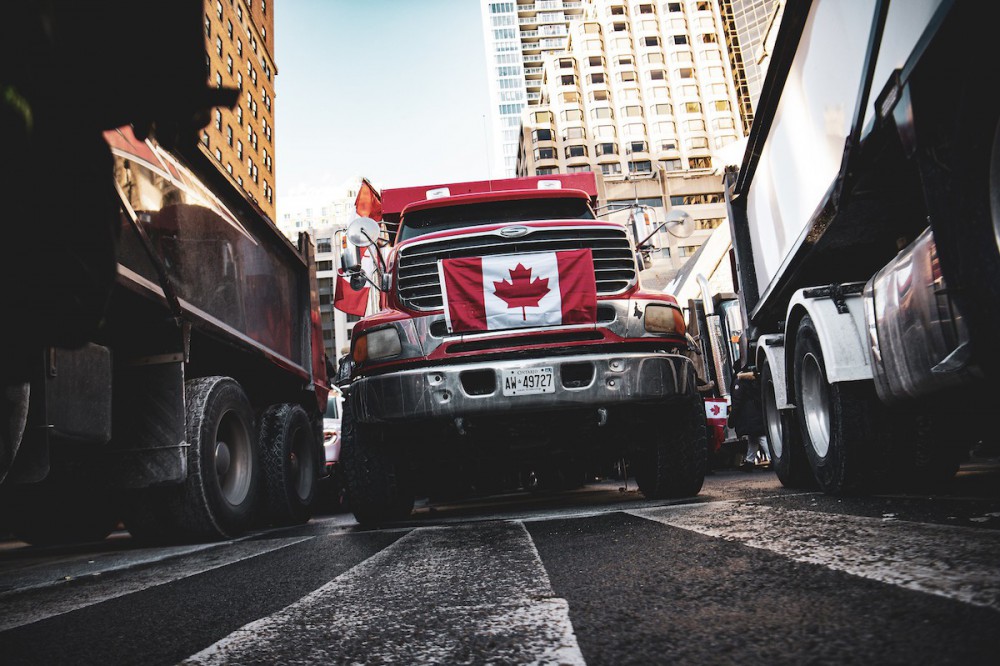
AP Some people’s response to that unequal policing is saying that these far-right protests should be treated by police the same way as BLM or land defender protests, or at least more aggressively. What do you make of that?
AV I think this is a fundamental mistake. Because what it does is it first buys into the idea that police are the right tool for resolving what are in essence political conflicts. This allows governments to avoid having to do the hard work of getting to the bottom of these political differences. It uses policing to paper over the problem in ways that can actually make the problem worse, because aggressive policing generates resentments, undermines police legitimacy and state legitimacy more broadly, can lead to a martyr complex among those who are targeted, and a deepening of militancy.
But it's also a mistake – especially for progressive forces, forces on the left, Indigenous communities – to imagine that policing will ever be applied uniformly. Policing has always, from its origins, been used primarily as a tool for disciplining those communities: the suppression of strikes, the use of the North West Mounted Police as a central tool for colonizing Canada, the use of police in the management of slavery in the U.S., COINTELPRO, Red Scare ... these have been central functions of policing, and when we embrace and legitimate the use of this kind of repressive political policing, we're mobilizing the tools that will primarily be used against our own movements.
It uses policing to paper over the problem in ways that can actually make the problem worse, because aggressive policing generates resentments, undermines police legitimacy and state legitimacy more broadly, can lead to a martyr complex among those who are targeted, and a deepening of militancy.
AP You say this focus gives a pass to governments to avoid doing the hard political work of getting to the bottom of these political differences. But how do you conceive of “getting to the bottom of things” with people with deeply entrenched ideas about racial supremacy and who want to topple the government immediately?
AV One of the weaknesses of a police-centered strategy is that it relies on the criminalization of the immediate physical participants in a political mobilization, and it equates the political movement with those individuals, and in the process it erases the role of all kinds of powerful institutional forces that may be at play. So when you look at the Capitol riot in the U.S., what we're finding increasingly is a lot of powerful elite interests behind the scenes who are providing funding, who are providing communication infrastructure, the involvement of members of Congress in supporting these movements and potentially the direct involvement of the White House. And then, to have congressional leaders say, ‘Well, the solution is to throw a few people wearing fur hats in jail,’ is letting off the hook the corporate funders of those politicians, of these right wing media outlets, of these conservative movements – like the gun industry and all the rest.
And similarly, we can see this pattern with the anti-vaccine movement in the U.S. and Canada and internationally. There are interested parties who are ginning up these movements, whether it is to be politically destabilizing, whether it's to sell crackpot nutritional supplements, etcetera. So we need to talk about accountability in relation to extremist politics – but that accountability should not rest at the level of police enforcement against a few frontline protesters.
One of the weaknesses of a police-centered strategy is that it relies on the criminalization of the immediate physical participants in a political mobilization, and it equates the political movement with those individuals, and in the process it erases the role of all kinds of powerful institutional forces that may be at play.
AP So what do you make of the eventual heavier police, even sometimes arguably militaristic, response to these far-right protests through the use of the Emergencies Act in Canada, and the National Guard in the U.S.?
AV I think we need to see it as a failure on two levels. First, it's a failure of policing to adequately assess threats, to come up with strategies for managing the situation as non-violently as possible. Recall that the police actually did kill someone who was unarmed in the Capitol. So this is a pretty profound failure of policing. But the mistake that's made is to say, “Oh, well then that just means we need more and more robust policing.”
The other failure is a political failure to understand the intensity of the protests, understand what's driving these protests, to hold accountable political actors who are mobilizing these protests for their own interests. And so my view is, whenever we see problems turned over to ever more aggressive, intensive, and invasive oppression, we should be looking at the political failures that led to it, and demanding accountability at that level rather than trying to make policing more military, militant, and robust.
AP So circling back to Canada, what do those initial failures look like to you?
AV I think there's been a pretty profound failure of messaging around COVID, and in the approach to public health. Too much of this has rested on political leaders and a few medical leaders getting in front of the television cameras and wagging their finger at people, trying to look like strong leaders. That has failed to connect with entire communities who have long-standing distrust of political and medical leaders for a variety of reasons, and this problem is even more pronounced in the United States. So where are the strategies of real community mobilization and co-participation in the production of public health?
One of the lessons, for instance, that was learned during the early years of the HIV/AIDS crisis was that having politicians and doctors go on television and wag their fingers at gay men is not an effective strategy for saving lives. What was effective was investing resources in community-based, peer-to-peer outreach, in which members of the community were hired and trained to deliver harm reduction messages within the community from a position of mutual understanding and mutual respect – rather than more legal mandates and finger wagging. And we really have not seen that strategy mobilized. Where are the religious leaders? Where are the public stars, the sports stars, music stars, television stars, actively working in the communities that they themselves come from? Instead of politicians trying to look tough and in charge on television. I think Andrew Cuomo, the former governor of New York, is a perfect example of this. This was about increasing his popularity ratings in the polls, not about effectively managing the crisis. He was more interested in publishing a book, than in really mobilizing public support for these public health interventions.
This interview has been lightly edited for clarity.


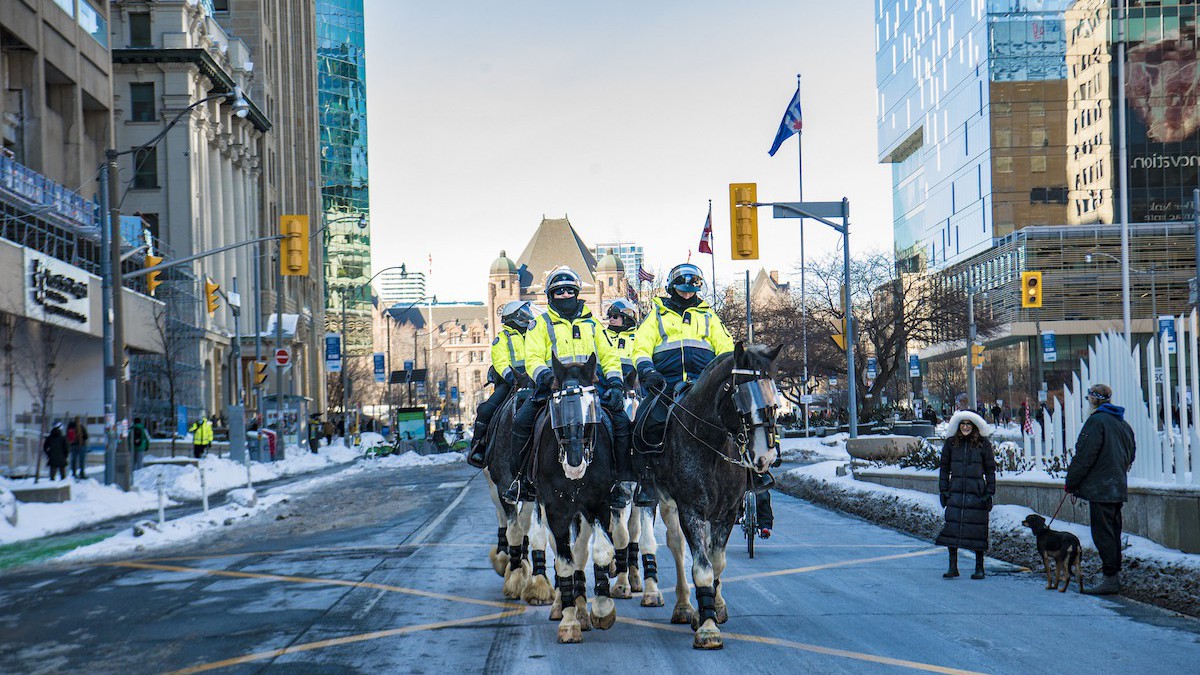
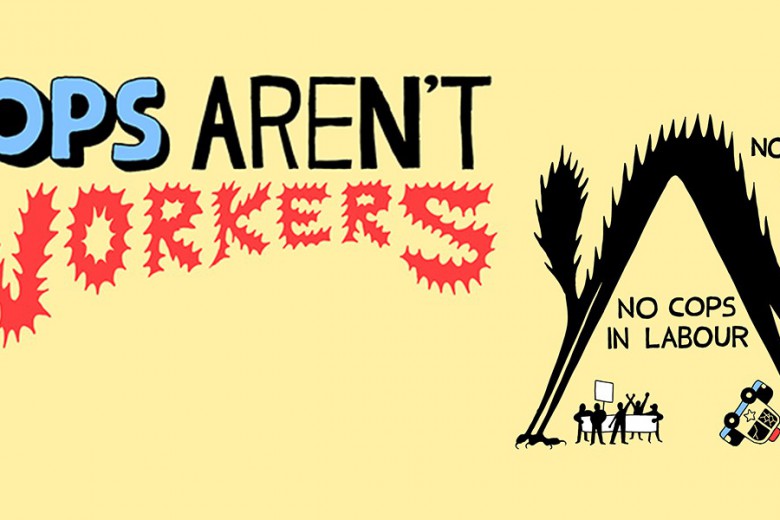
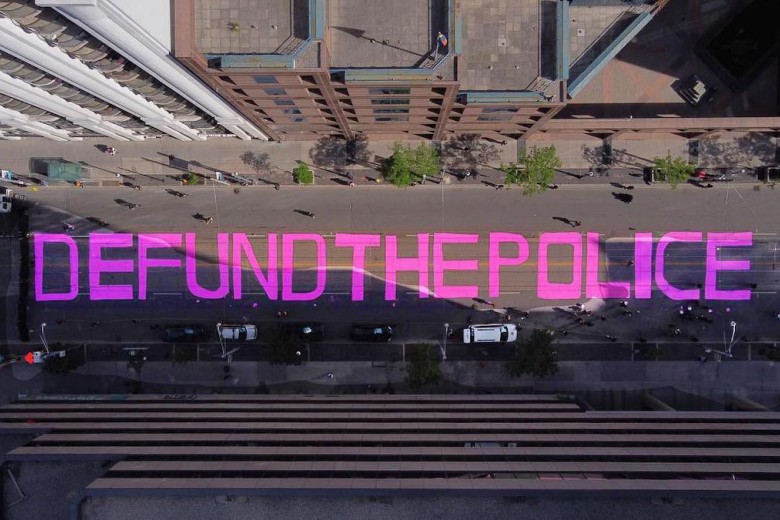
_780_520_90_s_c1.jpg)
